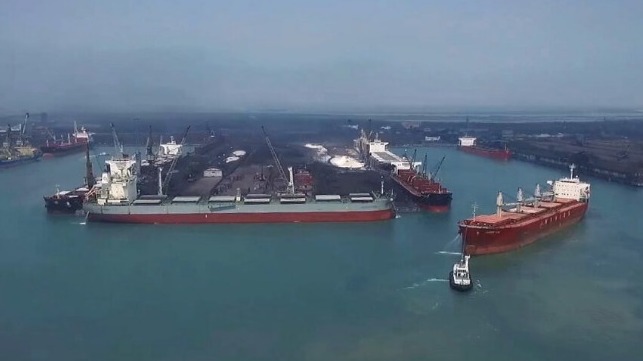Indian Court Requires $12M Bond to Release Ship Caught Smuggling Cocaine

More than two months after detaining a Vietnamese-owned bulker and its crew in one of India’s largest cocaine seizures, a court has set terms for the release of the ship. The Debi (37,196 dwt) has been held along with its crew of 21 Vietnamese citizens approximately three miles off Paradip Port in northeast India since early December when the drugs were discovered despite reports of depression and frustration among the crew.
The case was presented in an Indian district court today, February 12, and lawyers report the judge set stringent terms for the release of the vessel. The court has ordered the ship owner to post a $12 million bond and provide a $1.2 million bank guarantee before the vessel is released.
Earlier reports were that the crew was living aboard the ship waiting for the court. The Indian customs authority had initially detained the crew for interviews after they discovered 22 kg of cocaine with a street value of $26 million hidden aboard the bulker. The reports did not indicate if any of the crew would be charged with crimes, but earlier it appeared they were being cleared of involvement in the smuggling.

that matters most
Get the latest maritime news delivered to your inbox daily.
The media had written that the Indian authorities confiscated the crew’s cellphones and computers leaving them virtually isolated and unable to contact family at home in Vietnam. In mid-January, there was an altercation aboard the ship with reports that it might have been due to depression among the crewmembers. The vessel’s third engineer jumped into the harbor and was taken to a hospital with injuries to his hand. Media reports called it a possible suicide attempt.
The 611-foot bulker is registered in Panama and arrived at the end of November to make a port stop on a trip from Indonesia to Denmark carrying a load of steel plate. While being serviced at the port, a longshore worker noticed packages attached to one of the vessel’s cranes. The Customs Authority and police began searching the vessel and discovered the cocaine attached with magnets to an inaccessible area on the cranes. The initial investigation indicated that the cocaine was intercepted with India not the intended destination. The authorities believed it was going to be removed from the ship only when it reached Europe.
